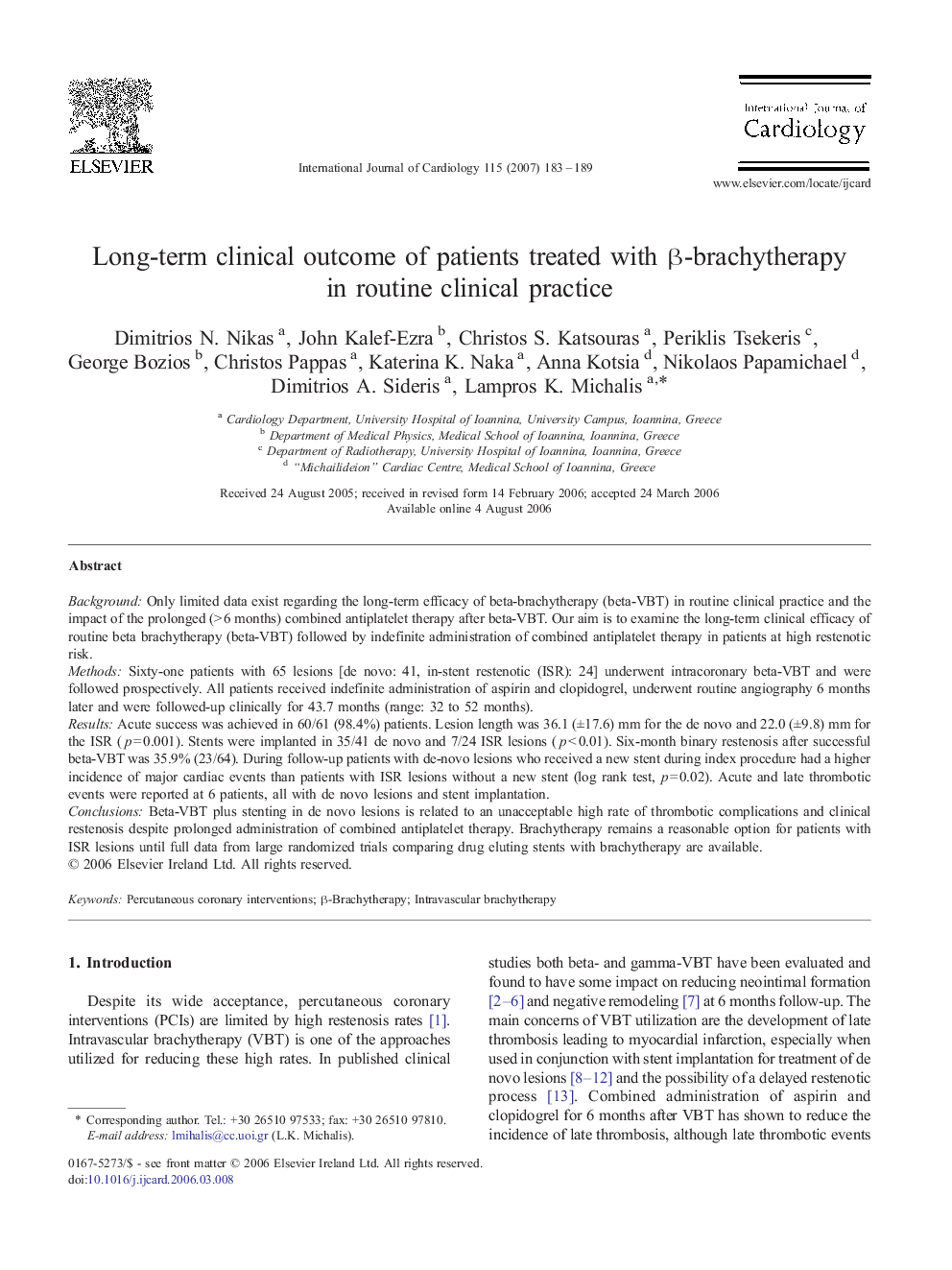| Article ID | Journal | Published Year | Pages | File Type |
|---|---|---|---|---|
| 2935309 | International Journal of Cardiology | 2007 | 7 Pages |
BackgroundOnly limited data exist regarding the long-term efficacy of beta-brachytherapy (beta-VBT) in routine clinical practice and the impact of the prolonged (> 6 months) combined antiplatelet therapy after beta-VBT. Our aim is to examine the long-term clinical efficacy of routine beta brachytherapy (beta-VBT) followed by indefinite administration of combined antiplatelet therapy in patients at high restenotic risk.MethodsSixty-one patients with 65 lesions [de novo: 41, in-stent restenotic (ISR): 24] underwent intracoronary beta-VBT and were followed prospectively. All patients received indefinite administration of aspirin and clopidogrel, underwent routine angiography 6 months later and were followed-up clinically for 43.7 months (range: 32 to 52 months).ResultsAcute success was achieved in 60/61 (98.4%) patients. Lesion length was 36.1 (±17.6) mm for the de novo and 22.0 (±9.8) mm for the ISR (p = 0.001). Stents were implanted in 35/41 de novo and 7/24 ISR lesions (p < 0.01). Six-month binary restenosis after successful beta-VBT was 35.9% (23/64). During follow-up patients with de-novo lesions who received a new stent during index procedure had a higher incidence of major cardiac events than patients with ISR lesions without a new stent (log rank test, p = 0.02). Acute and late thrombotic events were reported at 6 patients, all with de novo lesions and stent implantation.ConclusionsBeta-VBT plus stenting in de novo lesions is related to an unacceptable high rate of thrombotic complications and clinical restenosis despite prolonged administration of combined antiplatelet therapy. Brachytherapy remains a reasonable option for patients with ISR lesions until full data from large randomized trials comparing drug eluting stents with brachytherapy are available.
